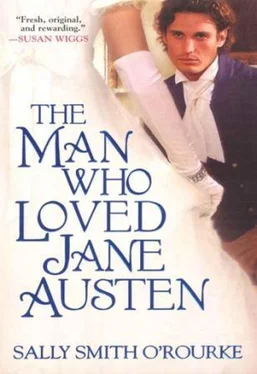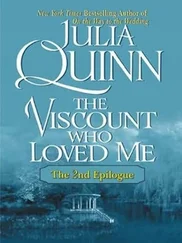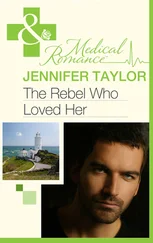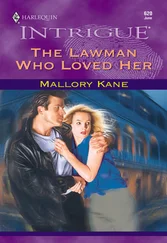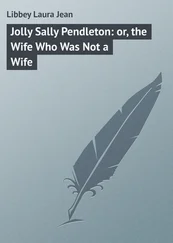“On that you may depend,” she assured him.
Jane reached out to take his hand, but his touch so electrified her that she remained sitting. “Will you not stay yet awhile?” she softly inquired, inviting him with a slight tug of her hand to sit again. “For there is much about your future world that I would like to know.”
Darcy looked over at Eliza, who was curled up comfortably with her feet beneath her on the gray suede coach seat, listening intently to his every word.
“So she asked me to stay with her and tell her all about the place I came from, and to explain what the future would be like.”
He paused in his narrative to take a sip from his nearly full glass of champagne. Noticing that Eliza’s glass was empty, Darcy retrieved the bottle from its shelf and refilled it for her.
“I did as she asked,” he continued, replacing the bottle on the shelf, “but it wasn’t easy because, if you think about it, for all of its obvious shortcomings her time was still in many ways far more innocent than ours.”
Eliza frowned at that. “It sounds like an awful time,” she said. “A time of wars, slavery, barbaric medical practices…”
He nodded slowly. “Yes, but in 1810,” he continued, “the skies and oceans of the world had not yet been polluted with industrial wastes. Great expanses of unbroken primeval forest still covered much of Europe and North America. There had been no world wars or nuclear bombs. No Hitlers had yet thought of constructing factories for the sole purpose of wiping out entire races of human beings…” Darcy’s voice trailed off.
“So was that how you described the future?” Eliza asked. “World wars and nuclear bombs?”
Darcy smiled and shook his head. “Fortunately, Jane wanted to know about other things, the kinds of things she wrote about. She asked me how society would change, customs, the role of women in the modern world…”
“And love?” Eliza inquired archly.
“Yes,” he said quietly, “love, too.”
Eliza slowly sipped her champagne and gazed thoughtfully into his eyes, wondering. “And what did you tell her, about love, Fitz?”
Darcy shifted uncomfortably in his seat. “Before I tell you that,” he said, “try to remember that I was speaking to a woman from a world where most women, especially women of her elevated class, were virtual prisoners of men. Generally they entered into loveless marriages based on property and money. Or they simply didn’t marry at all. In fact, something like sixty percent of women in Jane’s circumstances didn’t.”
Eliza’s eyes widened in surprise at the startling statistic, wondering where he had gotten it. But she said nothing.
“And even if an English Regency-era gentlewoman was lucky enough to find a suitable husband,” he continued, “her troubles were often just beginning. In that time and place, women were routinely kept pregnant, bound to their husbands, unable to inherit if there was a potential male heir anywhere in their family line—”
“I don’t think I understand where you’re going with this,” Eliza impatiently interrupted. “What about love? Jane Austen wrote constantly of love.”
Darcy nodded excitedly, thrilled by her evident interest in what he was saying. “Yes, but always she wrote about love as an ideal, an ideal that was only very rarely realized in life. Try to put yourself in her place. How old are you, Eliza?”
“Thirty-four,” she replied hesitantly.
“And how many lovers have you had in your life?”
Eliza felt her face reddening. “That is none of your damned business,” she snapped.
Darcy appeared to be genuinely startled by her hostile response. “Sorry,” he said, reaching for the champagne bottle again. “I was only trying to illustrate my point. By age thirty, an Englishwoman of Jane Austen’s time would generally have been considered unmarriageable… an old maid, a spinster.”
Darcy considered his next words for a moment, then went on speaking in a quieter tone. “She would never have had any lovers at all, Eliza. Because the risk of pregnancy was just too high, and giving birth out of wedlock may well have resulted in her being literally cast into the streets and abandoned by her family and friends. Remember Lydia, the younger sister from Pride and Prejudice who ran off with Wickham, who then had to be bribed into marrying her? Well, that was actually no joking matter. In real life, both the girl and her family might well have been ruined as the result of her indiscretion.”
Eliza nodded. She tried briefly to imagine what living such a life might have been like, and failed. “I think I get the point,” she said after a moment of further reflection. “In Jane Austen’s world love was truly a luxury. And sex was playing with fire…But is that really so different from the way things are today?”
“Oh, yes,” Darcy said emphatically. “In 1810, even sex in marriage was preposterously dangerous. More women died in childbirth than from any other single cause. And there was almost as much risk of contracting an incurable venereal disease from husbands who, more likely than not, frequently consorted with prostitutes in order to relieve their sexual urges.”
Eliza grimaced at the thought. “Lovely!”
“God knows our society today is far from perfect,” Darcy said, “but I was afraid that telling Jane how very different things would one day be might make her own world seem intolerable by comparison.”
He hesitated for a brief moment before continuing. “It would have been far easier for me to make up some safe, fictionalized future version of her own society,” he said.
“But you didn’t do that, make up a safe version of the future.” It was a statement, not a question.
Darcy shook his head. “In the end I told her everything, about birth control, women’s rights, female CEOs… In short, I told her the truth.”
Alarmed, Eliza suddenly reached out and gripped his hand. “Good God, why, Fitz?” she asked, her voice filled with genuine compassion for the long-dead English writer.
“Because she wanted to know,” he softly replied. “Because I didn’t want to leave her with a lie. And because…”
Darcy halted his narrative and looked down at Eliza’s hand. He slowly covered it with his own and leaned forward until their faces were almost touching. “Like you, Eliza, she was only thirty-four years old,” he whispered, “and though she didn’t know it, her life was almost over.”
His voice broke and he retreated, shaking his head. “I wanted her to know that the future held something better for women than what she knew.”
“And how did she react to your revelations?” Eliza was intensely aware of the pressure of Darcy’s hand squeezing hers. She squeezed back, encouraging him to go on.
He closed his eyes, savoring the feel of her touch. “Considering the fact that she had marked me as an arrogant, insufferable scoundrel, Jane reacted in the most unexpected way imaginable,” he told her.
“Then a woman in the society of your time may choose and discard her lovers at will, all without fear of censure?” Jane had listened in wonder to everything that Darcy had had to say about love and society in the twenty-first century, interrupting him frequently to ask pointed, intelligent questions, for which he had not always been able to supply ready answers, questions like that one, that were central to the freedom of all modern women.
“It’s not quite as simple as you make it sound,” he said, attempting to carefully qualify his answer, as he had several others before it. “But, essentially, yes, a woman of my time has that choice. Because for the most part lovemaking is no longer regulated by church or state, or even one’s relatives.”
Читать дальше
